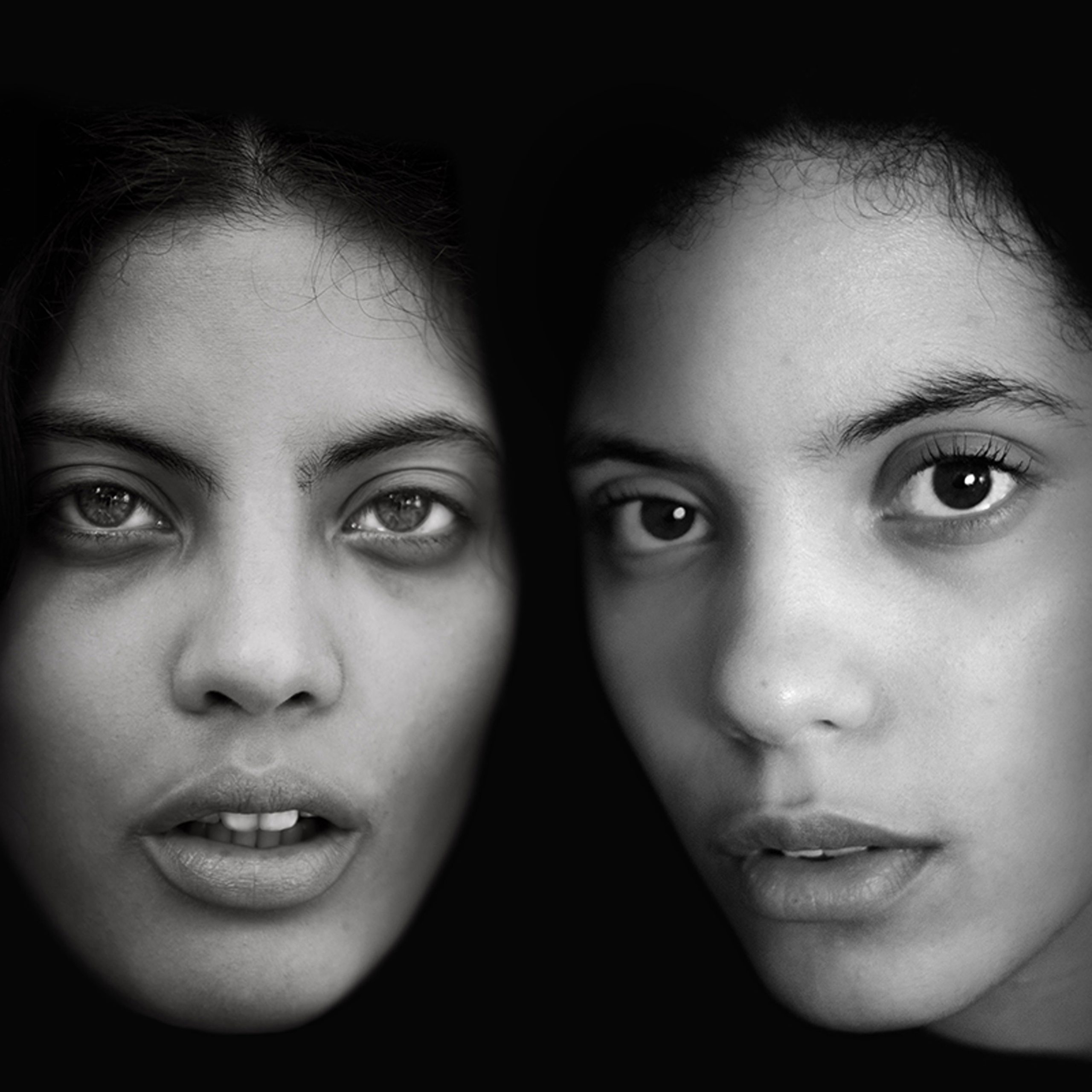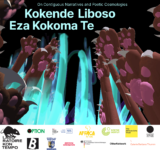 Ibeyi; Feb 17, 2015. XL Recordings.
Ibeyi; Feb 17, 2015. XL Recordings.
When I first watched the unsettling video for “River” by Ibeyi ( [pronounced ee-bey-ee] made up of Cuban-born, Paris-based twin sisters, Naomi and Lisa-Kaindé Díaz), on Okayafrica, I was first confused, then amazed, by not only the concept of the video, but the song itself. How can one not be confused by the sight of twin sisters who take turns staring expressionlessly into the camera, while singing in between being repeatedly submerged underwater?
They’re the daughters of the groundbreaking Cuban percussionist Miguel “Anga” Diaz, and their trademark style is a gumbo of Yoruba prayers and folk songs, blues, heavy bass and percussion, hip-hop, electronica and vocal harmony.
According to Jennifer Sefa-Boakye, they “honor their father’s legacy and Afro-Cuban heritage through their percussive production and use of live instruments. Naomi plays both the cajón and the batá while Lisa-Kaindé remains more in tune with the musical mythos of Ibeyi’s sound by weaving Yoruba lore deeply into their lyrics”.
Signed to the record label XL, the home of Vampire Weekend and Adele, Ibeyi released “River”, one of the early singles heralding their Oya EP, and the self-titled Ibeyi LP, which was released shortly after, and the song sets the mood for many of the hypnotic songs in the album. This song, written by the French-Cuban twin sisters, is dedicated to the Yoruba goddess, Oshun, of sweet, fresh waters who is widely loved and known for healing the sick and bringing fertility and prosperity, and she especially watches over the poor and brings them what they need.
The opening chant of “River” is reminiscent of Nigerian poet, Christopher Okigbo’s opening lines in the poem “The Passage” which is something like an offering to Idoto, the village stream/diety, by the persona at the begging of a physical and spiritual journey.
Ibeyi’s debut, which is at once gloomy and uplifting, has been labeled “doom soul” by Okayafrica, and “electro-tinged ‘contemporary negro spirituals’” by The Guardian, which matches part of the mood of the album, which is informed by tragedy; in 2006, the twins’ father passed away and in 2013, so did their older sister.
One of the songs which highlights the dual nature of Ibeyi’s music is “Ghosts”, in which pessimism gives way to hope, after a turn of phrase, when they say:
Welcome to my earth
It’s a crying shame
We have built a foolish world
Busy fighting, cruelly lying and denying
My ghosts are not gone
They dance in the shade
And kiss the black core of my heart
Making words, making sounds, making songs
Now you can feel my heart spinning
You turn my whole life around
I want to write a new beginning
Let go of the ghosts
Let dreams and hopes fly
And give our love another try
The song ends in a prayer-like chant, akin to “River” and several other songs on the album. Other songs address; the loss their late father (“Think of You”), and also their older sister (“Yanira”), but “Stranger/Lover” has more of a hip hop/neo soul feeling, which sets it apart from most of the other songs.
The experimental edge that this album wields, makes it at once jazz, soul, traditional, and alternative, as the twin sisters harness the power of their influences, which range from Nina Simone to Lauren Hill, while they sing in English and Yoruba (with sprinkled pieces of French) amidst a backdrop of percussive effects.
Another reading of Ibeyi’s album can eschew the journey of self-discovery the twin sisters are on, and rather highlight their endeavor as a paean, which charts Yoruba folklore, and the inextricable metaphysical relationship between reality and spirituality to which they are indebted.
If there is one thing that is clear about this album, it is that this is a beautifully executed concept album, which, coupled with the vocal harmony, experimental edge, haunting and uplifting lyrics, there is no doubt about the maturity of this debut.







Just watched the vid coz of this article. Words that come to mind…spooked, intrigued, impressed…wow!